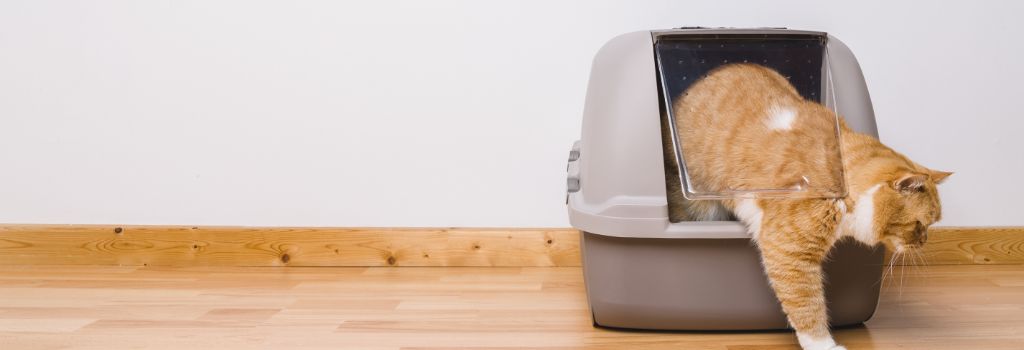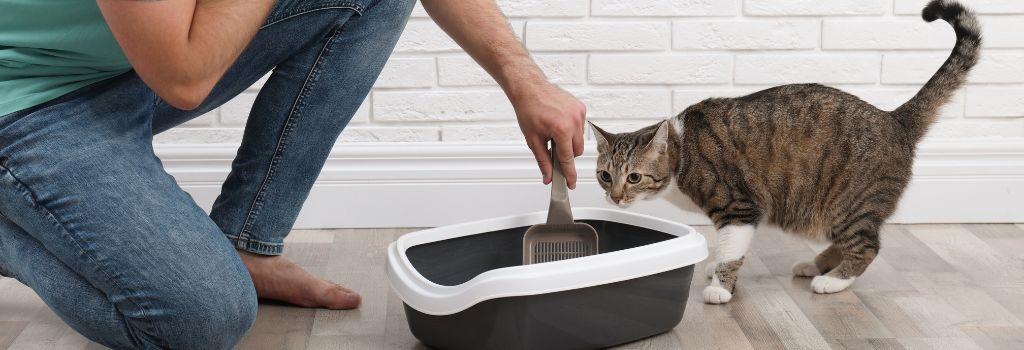Ah, the litter box: that indispensable item that cat owners have a love-hate relationship with. On the one hand, it grants our feline friends the independence they crave and is “less work” than a potty walk. On the other, it can sometimes be the source of... let's just say, "stinky" surprises. As any seasoned cat owner knows, managing the litter box is essential for a harmonious household and when it comes to their litter box, they have certain standards. Whether you're a first-time cat parent or a seasoned feline aficionado, refining your approach to the litter box can make life smoother for both you and your pet.
Here are five litter box tips that can lead to purrs of approval.
Location, Location, Location
Cats are private creatures and real estate matters. Just as you wouldn’t want someone watching you during your private moments, your cat also appreciates a bit of discretion. Similarly, no one likes a bathroom with a view of the dining room, and your cat is no exception. Place the litter box in a quiet, accessible corner away from their food and water dishes. If you live in a multi-story house, consider placing a box on each floor. Accessibility is essential, especially for kittens or older cats who might not always make the trek to a far-off box in time. It's all about making life easy (and dignified) for kitties of all ages.
The Scoop on Scooping
Cleanliness is Catliness: Would you like to use a bathroom that hasn't been cleaned for days? Neither does your cat! Regular scooping - ideally once a day - keeps the litter box fresh and encourages your feline friend to use it. Regularly emptying the entire box and giving it a thorough cleaning at least once a month is also crucial. And when you do, always use a mild, unscented soap. Strong chemicals or fragrances can deter a cat from using the box.
Depth Dive
Dive deep with litter. Contrary to some beliefs, cats don’t prefer shallow pools of litter. Ever noticed your cat's deep-digging antics before doing their business? Cats have an innate desire to bury, stemming from their wild ancestors. Providing a generous depth of about 2-3 inches of litter allows them to indulge in this instinctual behavior. It's more than just a sandbox; it's a slice of the great outdoors.
One Isn't Always Enough
Here's a golden rule to remember: have one litter box per cat, plus one extra. In multi-cat households, litter box dynamics can become, well, a bit political. So if you have two cats, that means three boxes. This provides options and can prevent territorial squabbles. Because let's face it, no one wants to wait for the bathroom. And, if one box is a little too... aromatic... your cat will have other options.

Choosing the Right Material
With a plethora of litter choices available—clumping, non-clumping, clay-based, biodegradable—it might seem overwhelming. Start by understanding your cat's preferences. Observing and adapting are key.
Selecting the appropriate cat litter is more than just a random pick from the store shelf; it's about understanding your cat's unique preferences while also considering practical aspects for yourself. Here are 3 pivotal things to keep in mind:
- Texture and Composition: Cats have sensitive paws, and the texture of the litter can greatly influence their litter box experience. While some cats might lean towards the fine, sand-like consistency of clumping clay litters, others might prefer the larger grains of a non-clumping variant or the natural touch of wood or paper-based options.
- Odor Control and Dust: While a fragrance might seem like a pleasant way to mask litter box odors, many cats can be deterred by strong artificial scents. Instead, opt for litters that offer natural odor control. Equally important is the dust factor; low-dust or dust-free litter is beneficial for both feline respiratory health and household cleanliness.
- Environmental Considerations: With rising environmental concerns, many cat owners are shifting towards more sustainable options like biodegradable litters made from recycled paper, wood, or even corn. These options can be just as effective as traditional litters and offer an eco-friendly alternative.
Wrapping It Up
Mastering the litter box preferences for each cat is a blend of observation, understanding, and a pinch of patience. While it may seem like a small aspect of cat care, getting it right can make a significant difference in your cat's happiness (and by extension, yours). Embrace these tips, and you're well on your way to creating a feline-friendly haven that ensures both cleanliness and abundant kitty contentment. If struggles persist, don't hesitate to reach out to your veterinarian for a wellness exam to rule out any medical concerns.
Happy scooping!
If you have questions and you'd like to reach out to us, you can call us directly at (480) 614-9500, or you can email us at [email protected]. Don't forget to follow us on social media Facebook, Instagram
